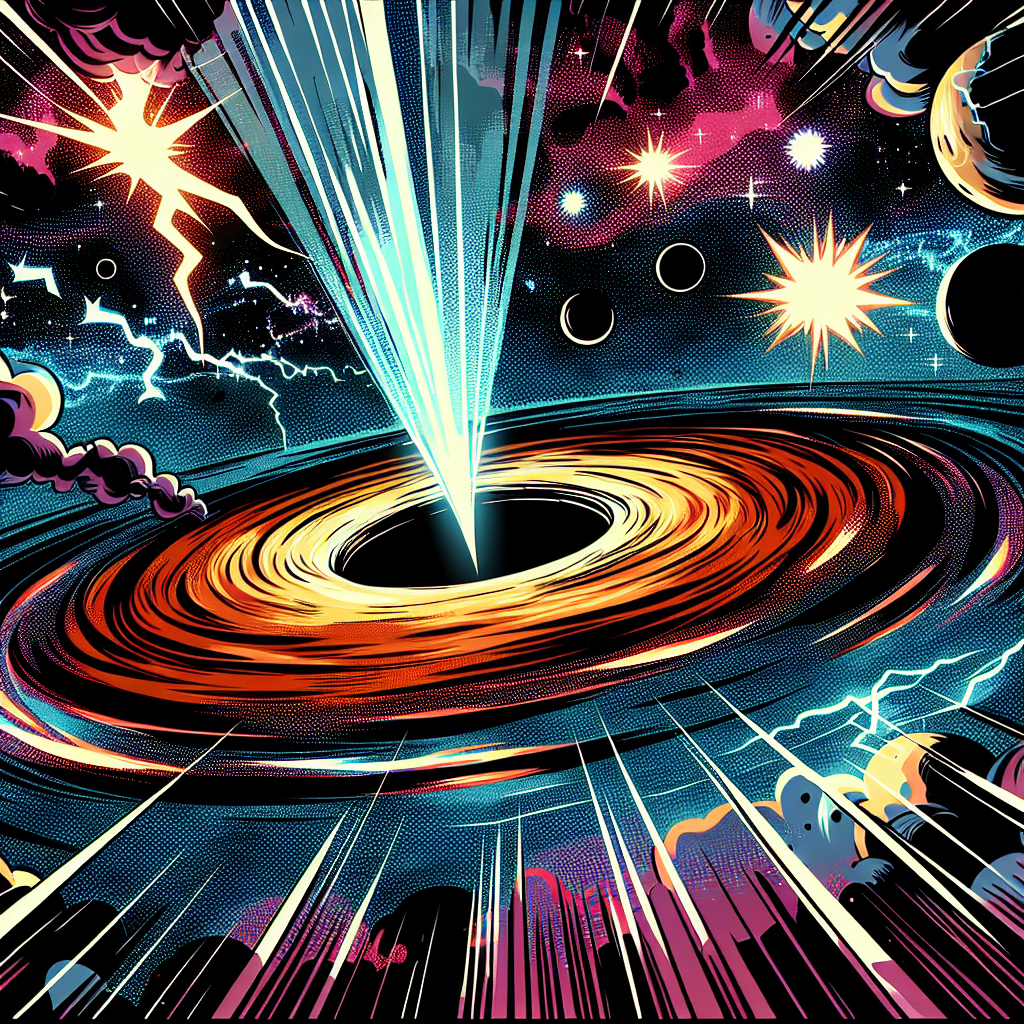A supermassive black hole entering our galaxy would be an event of monumental proportions. Imagine a cosmic bulldozer, a gravitational juggernaut that would reshape the very fabric of our galaxy. This behemoth would be millions, even billions, of times more massive than our sun.
At the heart of a galaxy like our own Milky Way lies a supermassive black hole, a region in space where gravity is so strong not even light can escape. Imagine a sinkhole in space, one that warps the fabric of spacetime around it, making anything that gets too close succumb to its gravitational pull. Now, imagine a stranger, an intergalactic visitor, a supermassive black hole from another galaxy, wandering into our cosmic neighborhood.
As this interloper approaches, its gravity would start to perturb the orbits of stars and gas within our galaxy. The first hint of its presence would be a subtle disturbance, akin to a gentle breeze on a summer day, but one that would grow in intensity as the black hole draws nearer. The inner regions of our galaxy would be the first to feel its effects, as the black hole's gravity would start to tug on the stars and gas, causing them to move in new, unpredictable ways.
Picture a spinning top, where the axis of rotation is no longer steady, but wobbles and vacillates. That's what would happen to the orbits of stars and gas in the inner galaxy as the supermassive black hole approaches. The once-stable galaxy would start to resemble a cosmic game of pool, where the cue ball is the intruder and the other balls are our galaxy's stars and gas, scattering and careening off in all directions.
The effects would not be limited to just the stars and gas. The black hole's gravity would also distort spacetime, causing ripples that would propagate outward like waves on a pond. These gravitational waves would be like a cosmic soundtrack, a constant hum that would permeate every corner of our galaxy.
Now, imagine the black hole drawing closer, its gravity intensifying, and the distortions in spacetime becoming more pronounced. The fabric of spacetime would begin to crease and fold, like a crumpled piece of paper, as the black hole's gravity warps the very essence of reality.
As the intruder continues to plow through our galaxy, the distortions would become more extreme. Stars and gas would be flung outward, like cosmic shrapnel, as the black hole's gravity disperses them into the surrounding space. The galaxy's once-ordered structure would give way to chaos, as the laws of physics are pushed to their limits by the gargantuan gravity of the interloper.
The supermassive black hole's presence would also trigger a burst of star formation, as gas and dust would collapse under its intense gravity, leading to the creation of new stars. This would be akin to a cosmic match being struck, igniting a fire of creation in the heart of the galaxy.
The black hole's journey through our galaxy would be a slow, methodical process, taking millions of years to unfold. As it moves through the galaxy, it would carve a path of destruction, leaving behind a trail of disrupted orbits, stretched and distorted spacetime, and the remnants of stars and gas that failed to escape its grasp.
Eventually, the supermassive black hole would reach the center of our galaxy, where it would merge with our own supermassive black hole. The resulting behemoth would be a monster of unimaginable proportions, its gravity distorting spacetime in ways that would make the fabric of reality tremble.
In the aftermath, our galaxy would be forever changed, its structure and appearance permanently altered by the passage of the supermassive black hole. The cosmos would have been reshaped, like clay in the hands of a cosmic potter, as the laws of physics were pushed to their limits and beyond.
In the end, the supermassive black hole's journey through our galaxy would be a testament to the awe-inspiring power of gravity, a cosmic force that shapes the very fabric of our universe.

Popular Space Questions
Find answers to the trending space questions being asked by our community on social media.
- How many galaxies are there in the universe?
- What would happen if a pulsar's beam hit Earth?
- How far is Pluto from Earth?
- How many planets are in the Milky Way?
- How many planets are in our solar system?
- What are the planets in order?
- How big is the Earth?
- What if we could create a Dyson sphere around the sun?
- What if we found a way to manipulate gravity?
- What would happen if a cosmic string passed through Earth?